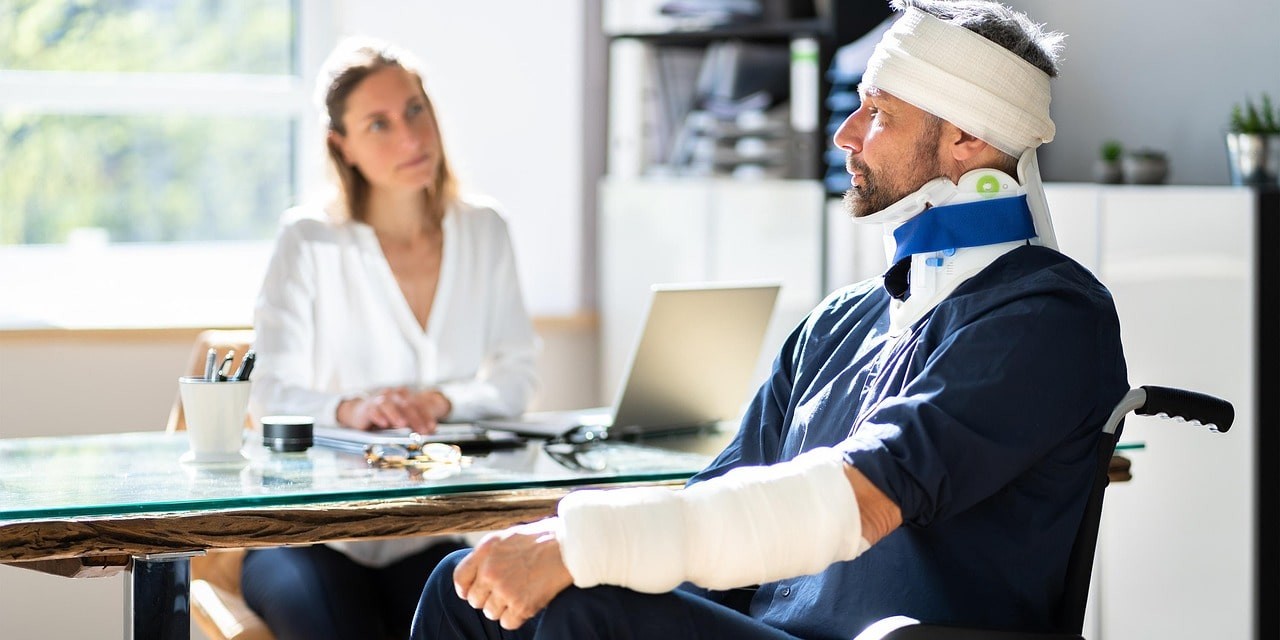Injuries—whether from a car crash on the Strip, a fall at a casino, or an unexpected incident at work—can turn your world upside down in a matter of seconds. In a city like Las Vegas, where fast-paced living meets constant tourism and entertainment, personal injuries are more common than many realize. But what happens after the dust settles?
True recovery involves more than just physical healing. Legal concerns, emotional strain, and financial uncertainty often follow closely behind. Whether you’re a resident or a visitor, knowing how to care for yourself both medically and legally is critical.
Here’s a comprehensive guide to navigating your post-injury recovery with confidence, clarity, and the right support.
- Seek Medical Attention Immediately—Even If You “Feel Fine”
One of the biggest mistakes injury victims make is delaying medical care. Adrenaline can mask symptoms, and some injuries—like concussions or internal bleeding—may not be immediately noticeable. Waiting too long to see a doctor not only jeopardizes your health but can also weaken any future legal claims.
In Las Vegas, you have access to multiple emergency care facilities and urgent care centers. Whether you visit UMC Trauma Center or a local walk-in clinic, getting your injury officially documented is the first essential step toward recovery and potential compensation.
- Document Everything
Once you’ve addressed your immediate medical needs, begin creating a detailed record of your injury and its impact on your life. This documentation plays a dual role: it helps medical professionals track your healing and provides essential evidence should you pursue legal action.
What to Track:
- All medical treatments, prescriptions, and diagnoses
- Photos of physical injuries
- Written notes about pain levels, symptoms, or physical limitations
- Missed work days and reduced income
- Any correspondence with insurance companies or the other party involved
Keeping a recovery journal—even just a few lines per day—can also help track how your injury affects your daily life and emotional wellbeing.
- Understand Your Legal Responsibilities and Rights
After an injury, you might be contacted by insurance adjusters, property owners, or even attorneys for the other side. Be cautious. Seemingly innocent questions can be used to reduce or deny your claim later. Avoid giving recorded statements or signing documents without understanding your rights.
In Nevada, the statute of limitations for filing a personal injury claim is generally two years from the date of the incident. Waiting too long could mean permanently losing your right to compensation.
To navigate this process with confidence, it’s wise to consult a Las Vegas Personal Injury Lawyer early in your recovery. They can help you assess your case, handle communication with insurers, and protect your interests—especially when the system feels overwhelming.
- Don’t Overlook Emotional Healing
Physical injuries are just one part of the equation. Many victims struggle emotionally in the weeks and months following an accident. Anxiety, depression, and post-traumatic stress disorder (PTSD) are common responses to traumatic events, and they deserve attention.
Las Vegas has numerous mental health resources, including private therapy practices and crisis counseling centers. Emotional healing is not a luxury—it’s part of your full recovery. If you’re experiencing sleep issues, persistent fear, mood swings, or social withdrawal, it may be time to speak with a licensed professional.
- Prioritize Physical Rehabilitation
If your doctor prescribes physical therapy or rehabilitation, take it seriously. These sessions are often essential for regaining full mobility and function, especially after broken bones, joint injuries, or spinal issues.
Failing to follow through with treatment can delay your healing—and may give the opposing party in your case a reason to argue that your injury wasn’t serious. Attend appointments, follow home exercise routines, and communicate any setbacks to your care provider.
- Watch Your Finances—But Know Help Is Available
Financial stress after an injury is real. Between medical bills, lost wages, and day-to-day expenses, many people face overwhelming pressure. If your injuries were caused by someone else’s negligence, you may be entitled to compensation not just for medical costs, but also for lost income, emotional distress, and even diminished quality of life.
While legal proceedings can take time, a qualified attorney may help you seek compensation to ease the financial burden. Some even work on a contingency basis—meaning you don’t pay unless they win your case.
In the meantime:
- Contact creditors and explain your situation (some offer hardship programs)
- Explore short-term disability benefits or workers’ compensation
- Keep receipts for every injury-related expense
- Know Your Rights as a Vegas Victim
Las Vegas sees millions of tourists each year and operates a high-volume workforce across casinos, hotels, and entertainment venues. Injuries here can involve everything from car accidents and construction mishaps to nightclub altercations or hotel negligence.
Whether you’re a local or a visitor, Nevada law allows you to seek compensation if your injury was caused by another person or company’s negligence. And thanks to Nevada’s comparative negligence rule, you may still be eligible for damages even if you were partially at fault—so long as your share of the blame is under 51%.
Tourists have the same legal rights as residents when injured in Nevada. If you’re injured while visiting, consult a local attorney who understands the state’s laws, court system, and typical settlement patterns.
- When to Consult a Lawyer
Not every injury requires legal action—but many do. Here are signs you should speak with a lawyer:
- Your injuries are severe or long-lasting
- You’re unsure who is at fault
- The insurance company is offering a low settlement—or denying your claim
- You were injured on someone else’s property or by someone else’s actions
- You’re missing work and losing income
The earlier you involve legal support, the better your chances of preserving evidence, avoiding mistakes, and securing a fair outcome.
Conclusion
Recovering from an injury in Las Vegas isn’t just about bandages and bed rest—it’s about taking care of yourself mentally, physically, legally, and financially. Whether you’re a resident or a tourist, don’t ignore the importance of proper documentation, medical follow-through, and timely legal guidance.
True self-care means protecting both your health and your future. If you’ve been hurt and don’t know what steps to take next, reach out for the support you deserve—because recovery is about more than just healing. It’s about reclaiming your life.









